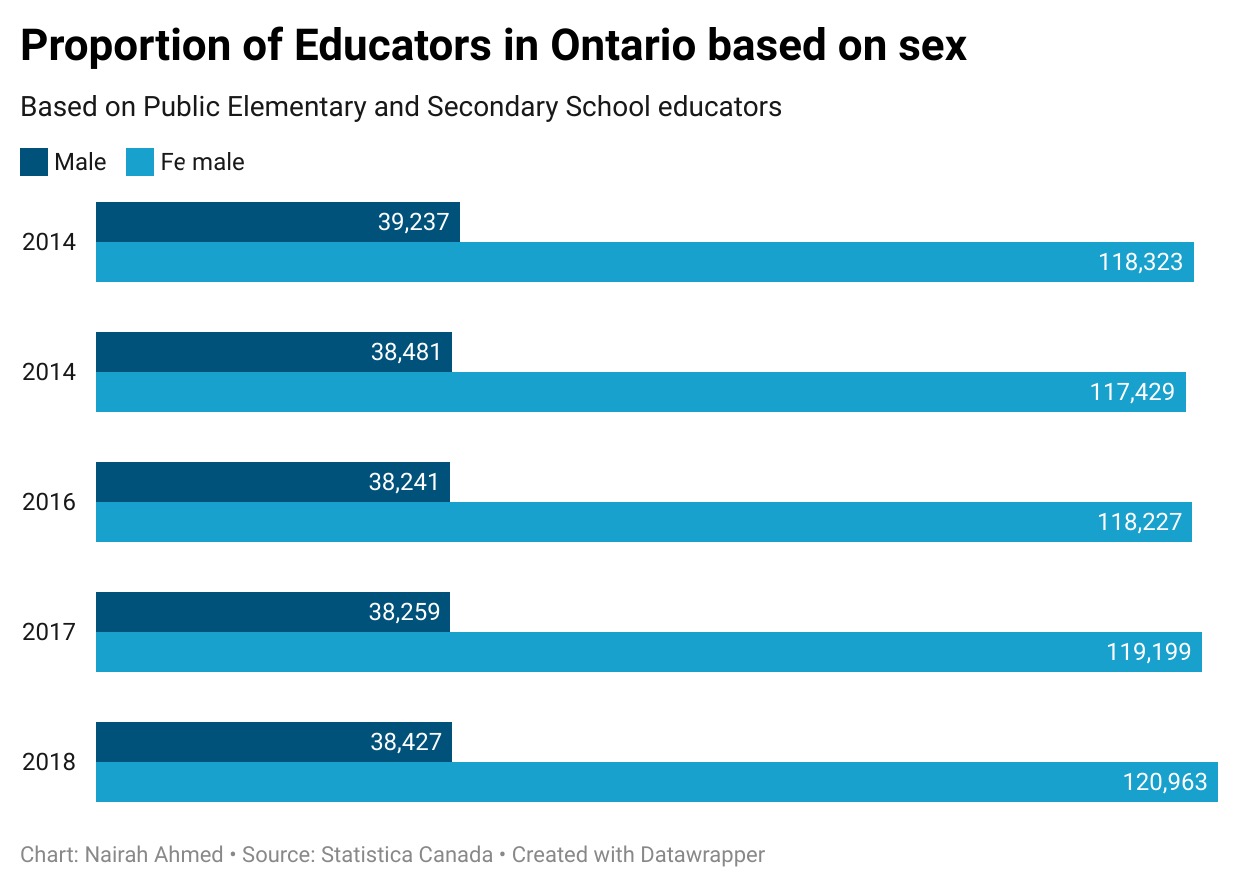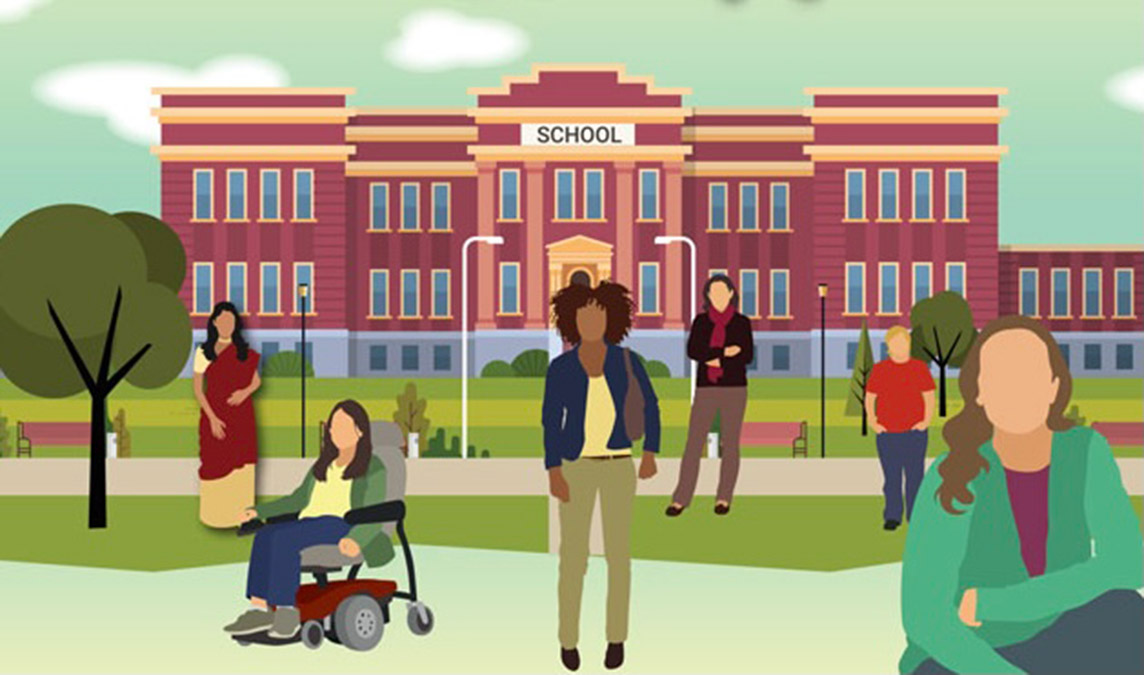As the federal government plans for a #FeministRecovery, under-represented women in particular, are among the hardest hit from COVID-19.
These women need to be included in any plan to rebuild the economy, said Marie-Pier Baril, press secretary for Minister for Women and Gender Equality and Rural Economic Development Maryam Monsef. Plans for the recovery are expected to be part of the first federal budget in two years. It will be presented on April 19 by Finance Minister Chrystia Freeland.
“They have faced job losses, the reduction in hours worked, over-representation in frontline work and the additional burden of unpaid care work at home,” Brail said.
“Women make up a high portion of frontline workers,” Statistics Canada says.
This especially true in education where, according to Statistics Canada, about 75 per cent of educators in the public school sector are women based on numbers from 2018-19.
The Elementary Teachers Federation of Ontario said that the percentage of women in its ranks has been consistent since the inception of the organization in 1998.

In 1918, the Federation of Women Teachers’ Association of Ontario was formed aiming to “promote the professional and financial status of women teachers.”
It wasn’t until 1998, 90 years later, when the Women Teachers’ Association of Ontario merged with the Ontario Public School Teachers’ Federation to form the current Elementary Teachers Federation of Ontario(EFTO).
Education is also happening at home, Statistics Canada says. In June 2020, approximately 64 per cent of women reported they were the parent mostly responsible for homeschooling.
The burdens women face educating children and coping with limited resources is made heavier because the home may not be safe, says Giulia Carpenter, executive director of Sudbury Women’s Centre.
“That is not always the case for a lot of our clients at home with their abusers.”
The pandemic is adding to that because “one major barrier is the isolation piece, now the women are in isolation with a perpetrator,” said Sirine Morra, case manage for the Calgary Immigrant Women’s Association.
Morra says many women lack access to the resources they need to live securely.
These tools are helpful but pandemic concerns remain.
“If someone wants to leave a DV situation there’s less beds available in shelters because they need to maintain the social distancing…” Morra said.
Some situations Morra encounters are unsafe for women and CIWA helps as much as possible. Pandemic demands and social distancing makes access to resources and communication a challenge. (Editor’s note: Anyone in danger in Ontario should call the Assaulted Women’s Helpline, toll-free, for immediate assistance: 1-866-863-0511.)
The battle continues outside the home too. Women looking for work to escape their homes and feed their families are battling a rising unemployment rate.
“There’s so many people applying for one job, that’s a lot of competition,” said Morra.
And resources regularly provided by CIWA and other organizations are less accessible while demand has increased. Morra explained increased waits for furniture or clothing are troublesome because many people are in need.
“There is the frustration of being on hold for three hours,” says Morra, “Maybe they need instant communication but everything is just, you have to wait.”
The goal of the Sudbury Women's Centre is to ensure basic supports are provided to women in these situations.
"They do not have access to online tools, we all know that not everyone has the ability to afford technology items or the internet for that matter," said Carpenter.
The centre has applied for grants to help provide more resources.
"We have applied for more funding this past year than we ever have. We are grateful for what we were able to secure but the funding that we did receive is only short term."
Carpenter emphasized that more action is needed to combat systemic difficulties that organizations will face after pandemic barriers are acknowledged.
Statistics Canada also says “Immigrant women represent 31 per cent of nurse aids, orderlies and patient service associates.”
Morra also stresses the importance of mental-health recovery for all women after a year of immense grief and stress.
“All of this mental-health stuff that’s been put on hold while people are in this survival mode, they’re not going to just disappear when the pandemic concern lessens,” she said.
The need for mental-health support for minority women is even more profound.
Statistics Canada reports "57 per cent of female participants ... reported their mental health is 'somewhat' or 'much' worse since physical distancing began." This is a rate 10 per cent more than men reported in the study.
The Sudbury Women's Centre provides resources to improve mental health as best they can.
"A simple sewing class or attending one of our self-compassion groups brings a sense of well-being, calm and tools for their mental health tool box," Carpenter said.




